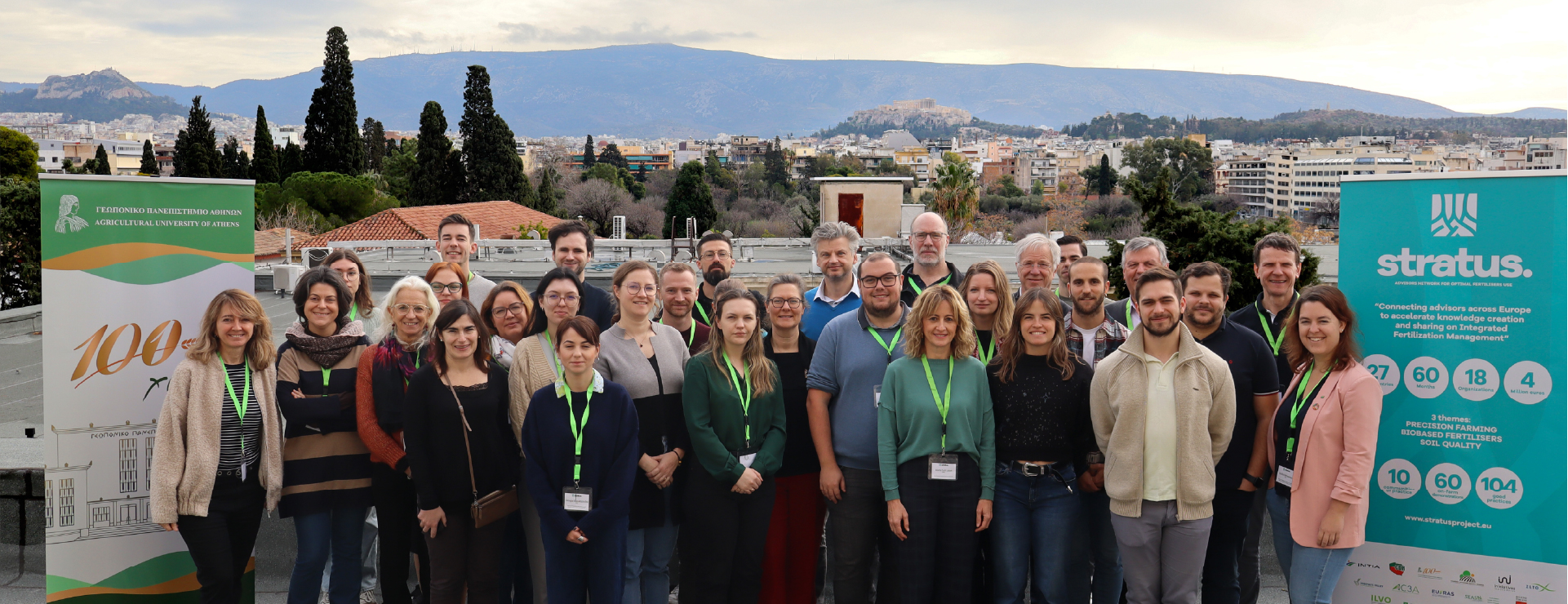One year after the launch of STRATUS in Pamplona, partner entities gathered again to hold the project’s first Annual Consortium Meeting and General Assembly. Members from the 14 partner institutions met in Athens, Greece, to review the project’s progress, reflect on the past year, and chart the course for the next phase.
STRATUS is a 60-month EU-funded project aimed at connecting agricultural advisors across Europe to accelerate the creation and exchange of knowledge on Integrated Fertilization Management. The goal is to help farmers apply this knowledge to meet the ambitions of the Farm to Fork and Biodiversity Strategies, reducing nutrient losses to the environment while maintaining soil fertility.
The Agricultural University of Athens (AUA) hosted the meeting on its iconic campus. The two-day event combined presentations from various working groups with workshops and sessions designed to advance project goals while strengthening the STRATUS team’s capabilities. Iniciativas Innovadoras leads the project’s communication, dissemination, and exploitation activities, and also supports the coordinating entity, INTIA (Navarre Institute of Agri-Food Technologies and Infrastructure), in administrative and financial management.
The meeting began at 9 a.m. on January 14 with a welcome from the university. The first day included updates on project progress, deviations, and the work plan for the coming year. Two workshops were also held.
The first workshop focused on a rapid analysis of some of the 52 identified Good Practices (GP) and Research Innovations (RI). This exercise helped partners better understand the systemic feasibility analysis developed by ILVO (Flanders Research Institute for Agriculture, Fisheries and Food), which evaluates the economic impact, legal applicability, and value chain effects of these practices. The second workshop addressed the organization and monitoring of advisor training. Members of ZLTO (Association of Farmers and Horticulturists of Zeeland, North Brabant, and South Gelderland, Netherlands), who organized the training, sought feedback on how to maximize its effectiveness.
The second day was equally packed. The first session, led by the coordinating entity, focused on identifying challenges in creating Communities of Practice and Fertilization Innovation Networks. Partners discussed potential activities to overcome these challenges. In the second session, AUA asked for feedback on the functionality of the platform’s inventory component. The morning continued with updates from the teams responsible for communication, dissemination, exploitation, and project coordination. The day concluded with the STRATUS General Assembly’s annual meeting.
That afternoon and the following day, some team members remained in Athens to participate in the first training session organized by ZLTO and ILVO, focused on developing interpersonal skills and exploring ways advisors can better connect with farmers.
Through these meetings, workshops, and collaborative sessions, the STRATUS team reflected on the project’s status and continued progressing toward its goals, while building strong working relationships essential for the tasks ahead.
